
views
Building Your Defense

Identify the elements the plaintiff must prove. Intrusion of solitude is a state tort. Although each state’s law will vary somewhat, the plaintiff must typically prove the following: Without authorization, you intentionally invaded the plaintiff’s private affairs. (Note that this intrusion does not need to be physical; spying and eavesdropping also qualify.) The invasion would be offensive to a reasonable person. You intruded on a private matter. Your intrusion caused the plaintiff mental anguish or suffering.
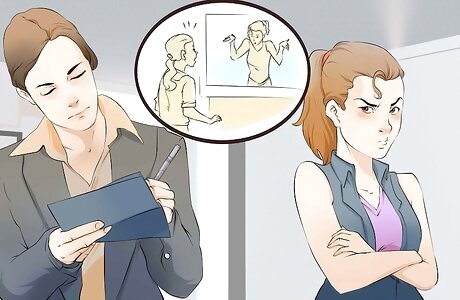
Read the complaint. When the plaintiff files a lawsuit, he or she will file a complaint. In this document, the plaintiff outlines the facts that gave rise to the lawsuit. As soon as you receive the complaint, you should read it carefully. Note the intrusive acts that the plaintiff identifies as giving rise to the claim. If you receive a cease and desist letter instead, then read that carefully also. Note what events the plaintiff considers intrusive.

Write down your memories of the incident. To defend yourself against an intrusion claim, you should write down your own memories of the intrusive incident. What happened? What were you doing and how did the plaintiff respond? Also record whether or not the plaintiff gave you consent to enter. Consent is a defense to an intrusion of seclusion claim. Ideally, you would have written consent to enter someone’s home or take someone’s picture. If not, then try to document as soon as possible what the person said when giving you consent.
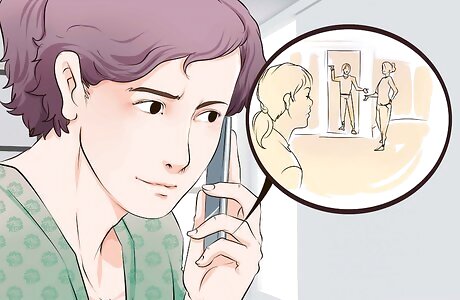
Get witness names, if available. Did a third party witness the incident? If you are accused of entering someone’s home, then a neighbor might have seen that you were invited inside. Try to contact witnesses as soon as possible and write down their contact information (email and phone). You may need to call them as a witness at your trial.

Research your state law. To understand the defenses you have available, you should read up on your state’s law. Each state’s law is different, so you should become familiar with the law that applies in your case. To find your state’s law, you can search the Internet for “your state” and “intrusion of seclusion.” The Digital Media Law Project also has summaries available for 15 states and the District of Columbia.
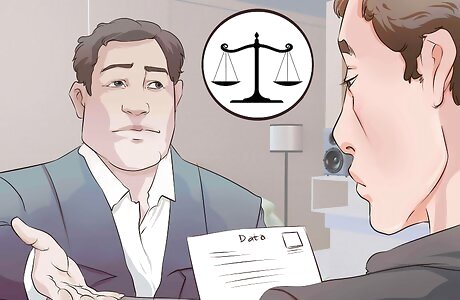
Meet with a lawyer. An experienced lawyer can help you craft a defense based upon the plaintiff’s factual allegations. You should visit your state’s bar association, which should have information about how to find an attorney. At the consultation, bring your copy of the complaint and any other documents that you have relating to the incident. In order to provide accurate advice, your lawyer needs to understand the factual circumstances surrounding the lawsuit. You should be honest with your lawyer. Whatever you share in the consultation will remain private. You might be worried about the costs of hiring a lawyer. You should realize that many states now allow lawyers to offer “limited scope representation.” Under this type of agreement, the attorney will only perform the tasks that you give him or her. Accordingly, you might hire the lawyer only to help you draft a summary judgment motion or to coach you about how to represent yourself at trial. Before setting up a consultation, ask the lawyer “limited scope representation” is available.

Engage in discovery. During discovery, you and the plaintiff exchange information in each other’s custody and control. There are many different aspects to discovery. For example, you and the plaintiff can exchange documents. You can also ask each other questions, whether in writing (using Interrogatories) or orally (during a deposition). During the deposition, you should probe how much mental anguish the plaintiff has suffered as a result of your intrusion. For example, the plaintiff might claim to have been very upset but not have changed his or her schedule in any way. This would tend to prove that the plaintiff suffered little if any emotional stress. You should also get all medical records from the plaintiff to check whether he or she has received counseling or therapy to deal with the mental anguish. If the plaintiff has no proof (other than his or her word), then your defense will be stronger.
Defending Yourself in Court

Respond to the lawsuit. After receiving the plaintiff’s complaint, you will need to draft an answer. In the answer, you admit, deny, or claim insufficient knowledge to admit or deny each of the plaintiff’s allegations. You should raise any affirmative defenses that you might have. Typically, you can raise the following: You mistakenly believed that you had permission to enter the secluded space. Your mistaken belief must be genuine and in good faith. The plaintiff consented to the intrusion. Consent can be express or implied. If someone does not object to your presence, then you may be able to argue implied consent. You intruded in order to cover a newsworthy event. In a couple of states this may be a defense to intrusion, as when you intrude on a prison in order to cover the conditions inside. The plaintiff took too long to sue. Each state has a statute of limitations, which states the maximum amount of time a plaintiff has to sue after the intrusion occurred. If the plaintiff waits too long, you can have the case dismissed.
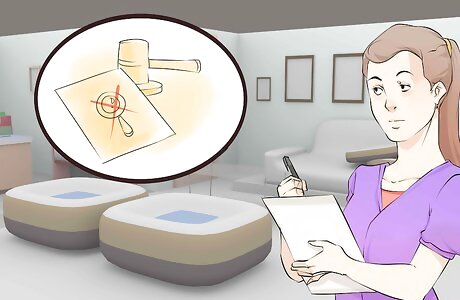
File a motion for summary judgment. In this motion, you will argue that the case should be decided in your favor without going to trial because there are no triable issues of fact and that it would be impossible for the plaintiff to win if you went to trial. For example, you could argue that because the plaintiff has no proof of mental anguish, that the lawsuit should be decided in your favor. Also, you might argue that your intrusion was consensual. If you were given permission to enter a private space, then you have not intruded upon the plaintiff’s seclusion.

Attend trial. Your trial should be fairly basic. You will pick a jury or choose to have the case heard by the judge. Each party will then present an opening statement. Because you are the defendant, you will go second. Each party is also able to present witnesses or introduce documents into evidence. The plaintiff will present his or her witnesses first and your lawyer can cross-examine them. After the plaintiff presents their case, you can present your own witnesses. At the close of evidence, each party makes a closing argument. If you have a lawyer, you should let your lawyer handle the presentation of witnesses and both opening and closing statements. However, if you are representing yourself, then see Address a Judge in Court and Represent Yourself in Court (U.S.) for how to proceed.
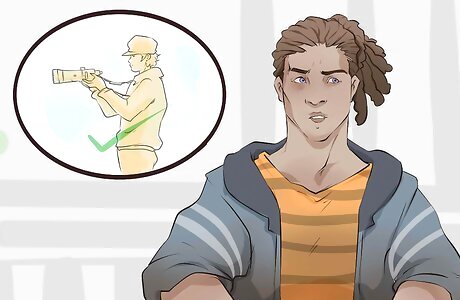
Argue that the intrusion was not offensive. This is a tricky argument. The legal standard is whether a “reasonable person” would find the intrusion offensive. To make a compelling case that your intrusion was not offensive, you should have a lawyer do legal research to find other cases like yours. For example, a plaintiff might sue you for taking photographs of her standing at her mirror applying lipstick. However, your state’s Supreme Court might have already decided a case where someone being photographed fully clothed in their home is not offensive to a reasonable person. If so, then you would bring this case to the attention of the judge and jury.
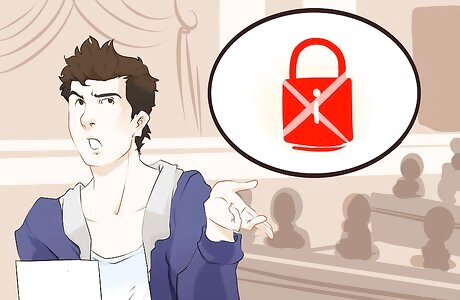
Prove that you did not intrude on a private matter. You can also defend yourself by arguing that you did not intrude on a private matter at all. A plaintiff can only recover damages if he or she had a reasonable expectation of privacy in the matter. People will generally have an expectation of privacy in their home. However, if you have been accused of spying on someone’s conversation held in their front yard, then you can argue that they had no reasonable expectation of privacy in that space.
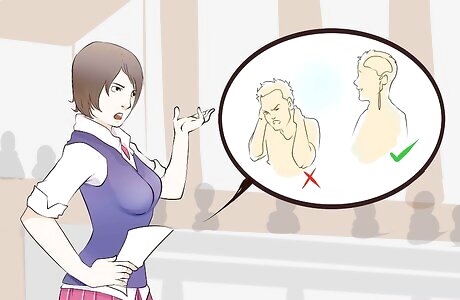
Show that the plaintiff suffered no mental anguish. The plaintiff cannot recover unless he or she has suffered mental anguish. You can defeat the claim by arguing that the plaintiff was not surprised or shocked by the intrusion in the first place. You can testify as to your own memories about the plaintiff’s reaction to the intrusion. If he laughed or expressed no surprise, then you defeat this element of the legal claim. For example, point to how little the plaintiff’s behavior has changed since the intrusion. If he or she continues to go to work and has never met with a therapist, then the plaintiff has probably not suffered emotionally at all. By making this argument, you can minimize the amount of damages you might have to pay even if the jury finds you liable for intrusion.

Appeal, if necessary. If you lose at trial, then you have the right to appeal the jury’s or judge’s decision. Ask the court clerk for a Notice of Appeal form and fill it out. You should file as soon as possible.



















Comments
0 comment